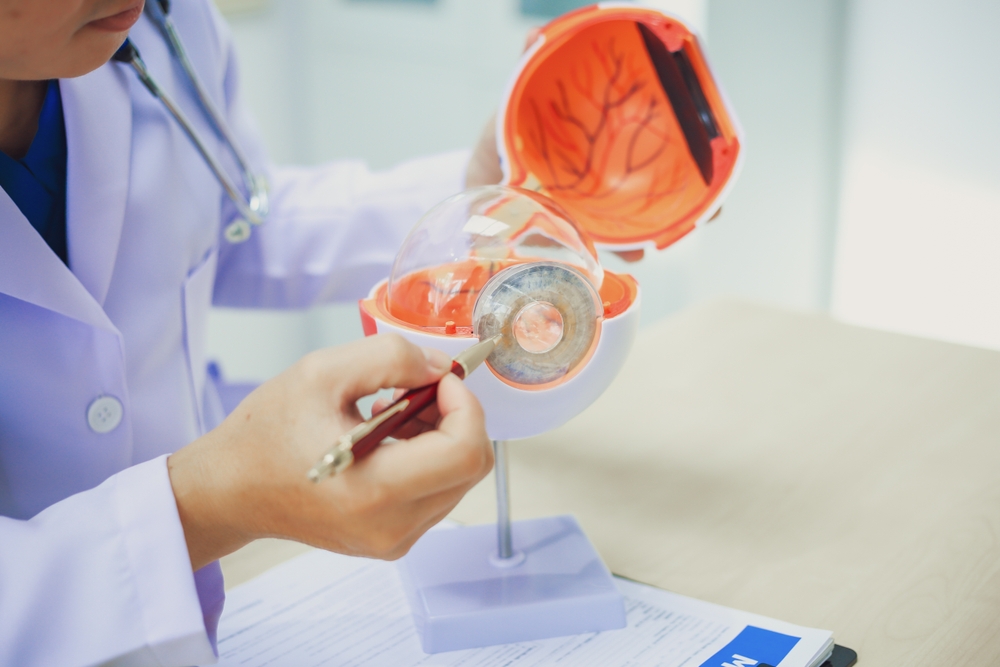
Diabetic retinopathy is a common yet preventable complication of diabetes that affects the eyes. If left unmanaged, it can lead to vision loss. At Lauren Alexander Vision Source, we believe in empowering our patients with the knowledge and tools to safeguard their vision and overall health.
What Is Diabetic Retinopathy?
Diabetic retinopathy occurs when high blood sugar levels damage the blood vessels in the retina, the light-sensitive tissue at the back of the eye. Over time, these blood vessels can leak fluid, swell, or close off completely. In advanced cases, abnormal blood vessels may grow, further compromising vision.
Common Symptoms:
• Blurred or fluctuating vision
• Dark spots or "floaters"
• Difficulty seeing at night
• Vision loss in advanced stages
Early stages of diabetic retinopathy may not cause noticeable symptoms, making regular eye exams essential.
How Can You Prevent Diabetic Retinopathy?
While diabetic retinopathy is a serious condition, you can take steps to reduce your risk:
1. Maintain Healthy Blood Sugar Levels: Consistently monitoring and managing your blood sugar levels is crucial. Work closely with your healthcare provider to create a personalized diabetes management plan.
2. Control Blood Pressure and Cholesterol: High blood pressure and cholesterol can worsen diabetic retinopathy. Regular checkups and medication, if prescribed, can help keep these factors under control.
3. Adopt a Healthy Lifestyle:
• Nutrition: Focus on a balanced diet rich in fruits, vegetables, whole grains, and lean proteins.
• Exercise: Engage in regular physical activity to improve blood circulation and overall health.
• Avoid Smoking: Smoking increases the risk of eye diseases, including diabetic retinopathy.
4. Schedule Regular Eye Exams: Annual comprehensive eye exams, including a dilated eye exam, are critical for early detection. At Lauren Alexander Vision Source, we use advanced diagnostic tools to monitor your eye health.
Managing Diabetic Retinopathy
If you’ve been diagnosed with diabetic retinopathy, early intervention is crucial for managing the condition and preserving your vision. Treatment options vary depending on the severity of the condition and include careful monitoring and lifestyle adjustments for mild cases, where managing diabetes effectively can help slow progression. Medications, such as anti-VEGF injections, are often used to reduce swelling in the retina and prevent further damage. In some cases, laser photocoagulation may be performed to seal leaking blood vessels. For advanced stages, surgical procedures like a vitrectomy may be necessary to remove blood or scar tissue from the eye and restore vision.
Protect Your Vision with Lauren Alexander Vision Source
Diabetic retinopathy is a serious but manageable condition when detected early and treated appropriately. By maintaining healthy blood sugar levels, adopting a proactive lifestyle, and attending regular eye exams, you can significantly reduce the risk of complications and protect your vision. We are here to provide personalized care and advanced treatment options to help you preserve your eye health.
If you have diabetes or are at risk, don’t wait until symptoms appear. Schedule a comprehensive eye exam with Lauren Alexander Vision Source and take the first step toward preventing and managing diabetic retinopathy. Visit our Shaven Park or Potranco office, located in San Antonio, Texas. Please call (210) 239-2020 or (210) 317-2020 book an appointment today.






